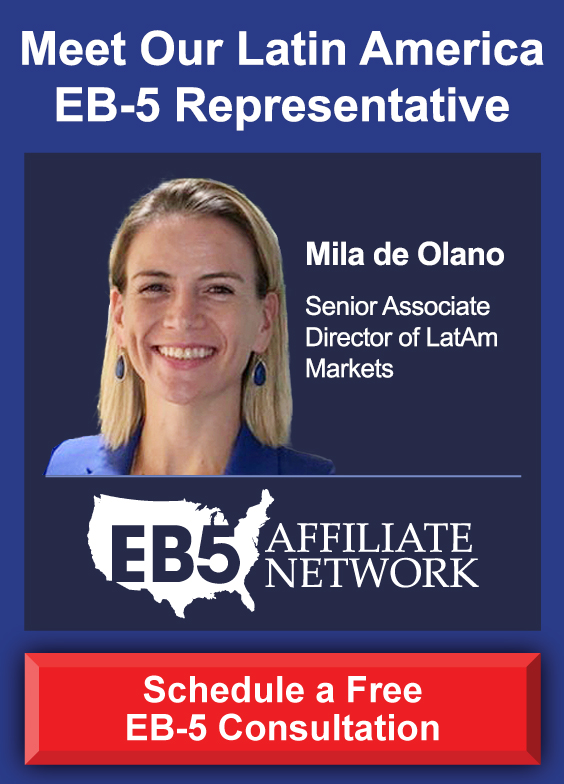
How the Reform and Integrity Act Safeguards EB-5 Investors’ Interests
Increased Accountability for Regional Centers
- Revised Reporting Requirements
- Third-Party Fund Administrators
- Material Changes
- Promoters and Migration Agents
- NCE Approval
- New Oversight Activities and Severe Penalties for Non-Compliance
Additional Provisions to Protect Investors
As one of the few immigration routes with a direct path to permanent U.S. residency, EB-5 investment is an incredibly popular and rewarding option for foreign nationals. However, EB-5 investors take on a degree of financial and immigration risk, as there is no guarantee of receiving a Green Card or repayment of funds.
Over the years, isolated instances of fraud and misappropriations of funds have peppered the EB-5 program, making foreign nationals understandably hesitant to pledge their time and money towards obtaining an EB-5 Green Card. Investors deserve to subscribe to transparent EB-5 offerings that comply with United States Citizenship and Immigration Services (USCIS) criteria, especially when, in many cases, EB-5 funds represent a family’s life savings.
To reduce the risk of fraud and protect EB-5 investors, Congress passed the EB-5 Reform and Integrity Act of 2022 (RIA). Enacted on March 15, 2022, the RIA introduced measures to make regional centers and industry participants more accountable to USCIS. Affecting everyone in the EB-5 market, from fund managers to overseas migration agents, the RIA mandates increased transparency, stricter oversight, and severe penalties for non-compliance.
Increased Accountability for Regional Centers
EB-5 regional centers are entities approved by USCIS to manage investment funds from multiple investors across various projects. Under the RIA, USCIS will now monitor regional center activities more carefully. Greater oversight will drastically reduce the likelihood of fraud, misappropriation of funds, and non-compliance.
The RIA also places severe penalties on non-compliant activities, such as providing inaccurate information. Not only will this keep EB-5 industry participants accountable, but it will discourage each regional center from taking liberties with its affiliation and loan agreements. These measures will help protect regional center investors from losing their investment funds or becoming disqualified for EB-5 Green Cards.
Revised Reporting Requirements
The management of each regional center is now required to notify USCIS before making changes to its business structure or management team. Regional centers must also submit annual financial reports to USCIS and their investors that demonstrate the regional center’s compliance with U.S. securities regulations. This new reporting obligation grants investors access to detailed records that show how their money is being used each year.
Third-Party Fund Administrators
The annual reports now required of regional centers must also be verified, either by retaining third-party fund administrators or obtaining audited financial statements. This additional measure helps ensure that the investment funds are being used for job creation.
Furthermore, since third-party fund-administrators are typically very selective of their clientele, reputable fund administrators are unlikely to approve a dubious, high-risk, or non-compliant EB-5 project. Such projects may also find it difficult to obtain audited financial statements. As a result, EB-5 investors can rest easy knowing their capital will be managed properly and transparently by their chosen regional center.
Material Changes
One of the biggest immigration risks for EB-5 investors is the possibility of material changes to the project they invested in. Material changes are significant deviations from the EB-5 project’s business plan that would prevent its investors from obtaining their Green Cards.
Under the RIA, regional centers are now required to inform USCIS of any major project modifications and whether they informed their investors of these changes. This additional layer of oversight encourages regional centers and project developers to follow through on their business plans.
Promoters and Migration Agents
Prior to the RIA, foreign migration agents working outside the United States were not accountable to USCIS. This lack of oversight made it easier for EB-5 investment promoters to be less transparent with investors. Now, under the RIA, all promoters marketing an EB-5 project must register with USCIS, including those working overseas. Even foreign migration agents will be required to provide a record of all fees paid by investors.
NCE Approval
Under the RIA, regional center investors will have to wait for USCIS to approve the project they’re investing in before they can submit their I-526E petitions. To receive USCIS approval, EB-5 projects must file Form I-956F, often referred to as a “project request”.
These project requests detail the project’s marketing fees and operations strategy to demonstrate compliance with U.S. securities regulations, as well as investment documents related to the EB-5 project. Through project requests, USCIS will be able to closely monitor regional center activities and detect any irregularities or non-compliance early on.
New Oversight Activities and Severe Penalties for Non-Compliance
To prevent fraud and misappropriation of EB-5 funds, USCIS will now conduct in-person site visits to regional center projects. Such inspections will also ensure the reported business activities are actually taking place. Additionally, USCIS will audit each EB-5 regional center at least once every five years.
USCIS will now perform more thorough and extensive background checks on individuals working in the EB-5 industry. A person with criminal convictions in the past 10 years cannot be associated with a regional center. Furthermore, anyone who has been involved in a case of fraud with a liability over $1 million is prohibited from participating in the EB-5 Regional Center Program.
Regional centers that do not submit accurate reports or comply with RIA regulations will be severely penalized. For example, USCIS may fine a non-compliant regional center by up to 10% of its raised capital. USCIS also has the authority to suspend or terminate regional center licenses and debar non-compliant individuals from the program.
Each regional center is now required to contribute $10,000 – $20,000 annually to an integrity fund. This fund will provide USCIS with the resources it needs to carry out oversight activities, such as in-person site visits.
Additional Provisions to Protect Investors
Protections Against Terminated or Debarred EB-5 Projects and Regional Centers
Even if an EB-5 investor conducts thorough due diligence and carefully evaluates a project before investing, there is still no guarantee of success. In some cases, the regional center associated with an investor’s project may be terminated or debarred due to fraud, mismanagement, or non-compliance.
Prior to the RIA, USCIS was very likely to deny the petitions of investors in such situations. To address this issue, the RIA includes provisions designed to protect innocent investors from events outside of their control. Investors whose regional centers or EB-5 projects are terminated or debarred now have 180 days to invest in another project or have their project affiliated with a new regional center.
Investors who use this clause can retain their priority dates and the child status of dependent family members.
Extended Window for Job Creation
In the past, EB-5 investors were required to have created the ten necessary jobs at the time of filing their I-829 petition — the final application used to obtain an EB-5 Green Card. Thanks to the RIA, investors can instead be “actively in the process of creating” the jobs and receive an additional year to meet the job creation requirement.
Even if job creation is delayed, the RIA strengthens investors’ chances at obtaining an EB-5 Green Card.
Guaranteed Processing if the Regional Center Program Lapses
When the EB-5 Regional Center Program lapsed on June 30, 2021, USCIS stopped processing regional center applications. This left countless investors stuck in “processing limbo” until the RIA reauthorized the program nearly nine months later. To prevent this from happening again, the RIA includes provisions to protect regional center investors in case of a future lapse.
Under the RIA, all regional center investors who file their I-526E petitions on or before September 30, 2026, are guaranteed to have their applications processed, even if the EB-5 Regional Center Program lapses once more.










